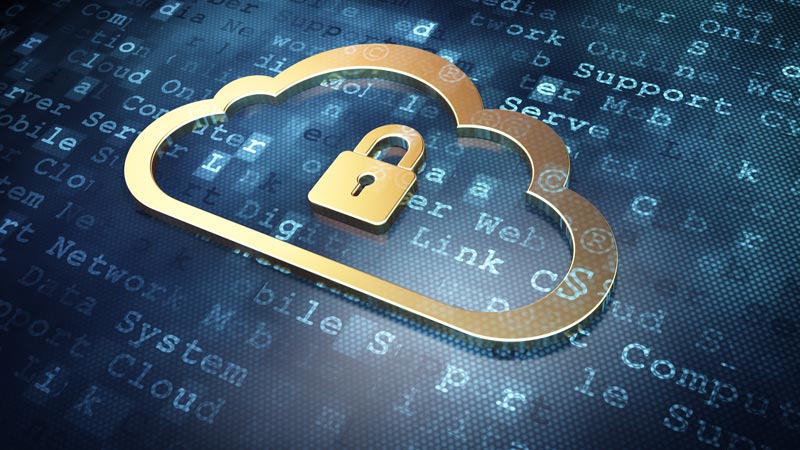Is My Data Safer in the Cloud?
Saving documents, photos, videos and other files on a hard drive is becoming more obsolete by the day. People are more frequently turning to cloud storage hosted by third-party providers to store their most important data. But, is your data safer in the cloud?
While cloud storage has its positives, including decluttering your computer and having access to your files if your device crashes, it’s natural to have concerns about cloud storage.
How vulnerable are your files?
Do you trust someone else to make sure your files don’t get lost or stolen?
Generally speaking, information stored in the cloud is more secure than information stored on your individual devices because cloud companies rely on far more robust cybersecurity measures to protect your data.
When you utilize a cloud service, you give up control of security, but you gain the availability of your data. For example, if you drop your phone in a lake, you won’t lose the photos you took if you uploaded them to a cloud service. But if you saved them directly to your phone, they’re gone forever.
What is the Cloud?
Think of storing your information in the cloud like storing your money in a bank. It’s common practice to store your money in the bank despite the fact no bank is 100% secure. Banks do everything in their power to secure your money, just like cloud providers do everything in their power to secure your information.
Banks invest much more in security than the average person does, making it safer to store your money in the bank rather than at your house.
The cloud is made up of servers in data centers around the world that are accessed over the internet.
Any email service you use is cloud based. You can access your email on a laptop, but if you are out of the office, you can access those same messages on your smartphone. The messages aren’t stored on your device, but they are stored in the cloud so you can access them on any device from any location.
There is no such thing as 100% secure in the cybersecurity world, but cloud services are much more secure than any security measures you’d have at home.
File-sharing services, such as Dropbox, Google Drive and Microsoft OneDrive also are cloud based. These services allow you to share files over the internet without saving them to your devices.
Streaming services are another example of cloud-based services. You can log into Netflix on your TV at home, but if you’re at the airport waiting for a flight, you also can watch those same shows on your smartphone.
How Secure is the Cloud?
Can you really trust that your information is more secure in the cloud than on your personal devices? The short answer is yes.
There is no such thing as 100% secure in the cybersecurity world, but cloud services are much more secure than any security measures you’d have at home. Hackers can use malware and phishing emails to get access to information on your devices. It takes much more sophisticated attacks to get your data from a cloud provider.
Of course, cloud providers still are susceptible to data breaches. LastPass, for instance, had a data breach last year, and because of its security measures, including encrypting its users’ data, it was able to lessen the severity of the breach.
What Makes the Cloud More Secure?
Simply put, scale makes the cloud more secure than local storage. Cloud providers have entire teams of people and multiple time zones of redundant hardware.
They also utilize several security features that make the cloud more secure.
- Expertise and resources: Cloud providers have security teams with expertise in identifying and mitigating potential security threats. They also have the resources to invest in the latest security technologies, which can be cost-prohibitive for individual users or organizations.
- Physical security: They have secure data centers with advanced physical security measures, such as biometric authentication, surveillance cameras and 24/7 security personnel.
- Data encryption: Cloud providers typically offer encryption for data both in transit and at rest. This means that your data is protected from interception or theft during transmission, and even if it is compromised, the data will be encrypted, making it difficult to access.
- Redundancy and disaster recovery: They often have built-in redundancy and disaster recovery mechanisms to protect against data loss or service disruption. This means that if one data center or server fails, your data can still be accessed from another location.
- Access Controls: Cloud providers offer various access controls that allow users to control who can access their data and what they can do with it. This includes multifactor authentication, identity and access management, and user-level permissions.
Overall, the cloud is a much more secure place to store your data, and not only will your important documents be extra secure in the cloud, but you can access them from multiple devices should you lose your phone or your computer fails to start up. However, no cloud provider can promise 100% security of your data.
Managed IT Services in West Michigan
Are you looking to move your organization’s data to the cloud? Contact us here to see how we can help keep your business running smoothly while increasing productivity, security and profitability.











